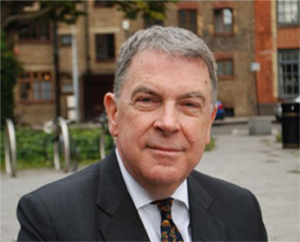In Confidence
I have just been reading a blog by PR exec George Snell. He was giving the inside story on an assignment a few years back, when he was asked to set up interviews for Saif al-Islam, Colonel  Gadaffi’s son, to talk about the release of the Bulgarian nurses who had been held in Libya on charges that they had infected Libyan children with HIV.
Gadaffi’s son, to talk about the release of the Bulgarian nurses who had been held in Libya on charges that they had infected Libyan children with HIV.
An interesting little blog, but it made me feel very uneasy. A large part of our business in Chelgate is devoted to issues and crisis management and I do believe that in this area especially, certain codes have to apply. If professional, high level strategic PR is to be taken seriously, and if it is to play its proper role in shaping and managing sensitive and troubling situations, then clients should expect rigorous standards of confidentiality from their advisers. There should be no conceivable risk that a few months (or even years) later, some PR gun-for-hire will emerge from the shadows with his (or her) “inside story”.
Many of our clients ask us to sign Non Disclosure Agreements, and that’s fine with us. But it shouldn’t need an NDA . If you claim to be a professional in this business, then you should act like one. Nobody forces you to work for the client in the first place. And if , once you are working for them, you decide that they are unacceptable for any reason, then you give notice. But you don’t take their money, and then betray their confidence.
Some years ago I left a firm where I had worked on a number of very sensitive crises. A few months after I left, one of my former team appeared in the media, plastered all over a national magazine, talking about his crisis management skills. When I read his accounts of assignments that we had worked on together – assignments that I had always considered to be confidential and private, I felt , literally, physically sick. I felt, somehow, that I had been party to a betrayal of trust.
Of course, there may be times when overwhelming moral or legal imperatives make some degree of disclosure necessary. And then you must do what you have to do. But if strategic PR is to be treated as a serious and important discipline, then it’s time its practitioners behaved like grown-up professionals.
Terence Fane-Saunders
